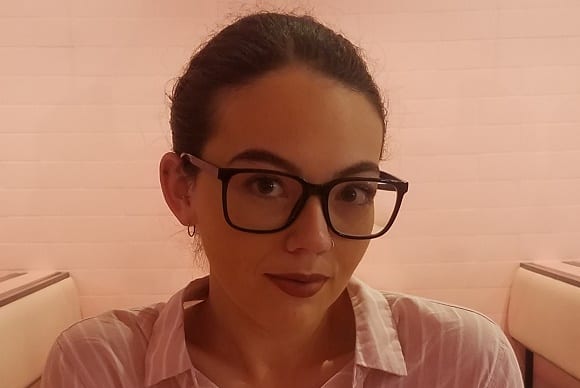
Emma Kneipp
Indigenous Health Scholarship
University of Newcastle, NSW
Bachelor of Nursing
Scholarship Awarded 2020
Sponsored by:
Rotary Club of Wetherill Park
How will I contribute to improving Indigenous health as a qualified medical practitioner or health worker?
I am from Ashford, a small remote community in North West NSW with a high Indigenous population, where access to medical staff and resources where always very limited. The closest hospital is in the neighbouring town of Inverell 57 klms away. Growing up I always saw and experienced the struggle of the lack of medical staff and resources and was determined to better health outcomes for Indigenous people.
Now, in the third year of my nursing degree, I am thinking of potential career paths I could take. My passion is improving health outcomes within Indigenous communities and aiming to close the health inequality gap. When I become a qualified Registered Nurse, I will contribute to improving Indigenous health through many avenues including; promoting good health behaviors, help develop and promote Indigenous health campaigns, paying back to my community through providing my services where possible, providing safe and culturally appropriate care for Indigenous patients, further continuing my education to acquire more knowledge and working in partnership with community health programs to benefit Indigenous Peoples.
I would also continue volunteering and advocating for people to join their local sports clubs to further promote and facilitate positive health behaviours for both adults and children.
Current Progressive Report
My name is Emma Kneipp, I am 21 years old and I am from Ashford NSW. I currently live in Newcastle and am in my third and final year of University of Newcastle’s Bachelor of Nursing degree. I am now in my last semester of study and set to finish at the end of the year.
During semester one, I studied 3 courses including;
• Healthy Ageing Across Contexts, which involved learning content specific to nursing care for older peoples and diseases that affect the elderly such as dementia.
• Foundations of Professional Practice 3A, which focused on emergency, acute and critical care nursing and
• Clinical Practice 3A, which is a course dedicated to placement. Within this course we also learned knowledge and skills about management of critically ill patients, trauma, central line care, blood transfusions, underwater seal drains and paediatric life support.
Semester one faced its own unique set of challenges due to COVID-19. A lot of students’ clinical placements were cancelled or delayed due to the virus and lockdown but fortunately for me, I was able to complete mine. In April-May I went to Taree’s Manning Base Hospital for 5 weeks (200 hours) of placement in the oncology unit. During my time there, I was placed in the oncology outpatients clinic. Here I was able to meet patients from Taree and surrounds whom were receiving either cancer treatment or treatments that are more appropriately delivered to the community from an outpatient clinic e.g. blood/iron transfusion, pain management, central line insertion/management. This placement was very unique compared to previous placements, as there were COVID-19 protocols in place. This meant things like temperature checks before every shift, supporting and comforting patients who were distressed due to visitor limitations, limited
access to personal protective equipment (PPE) and increased security due to thefts/potential thefts of PPE/hand sanitizer/toilet paper. I enjoyed this placement very much, the staff were incredibly supportive and I was able to learn more regarding cancer care nursing. On reflection of this placement, I would like to experience oncology nursing when I become an RN as my duties during placement were limited because of restrictions NSW Health have in place for cytotoxic
(chemotherapy) drugs. This meant I was unable to be hands on with cancer treatments, as only RN’s are allowed to handle these drugs and manage the treatments. My experience was rewarding none-the-less.
Coming into the second half of the year, I am preparing for New-Graduate interviews and Registered Nurse job opportunities for 2021. I have been successful in gaining an interview at my most preferable location, being the Mid-North Coast’s Hastings-Macleay District. I will be attending that interview in late August.
I have already started study for semester two and am undertaking classes including:
• Transition to Professional Practice
• Leading, Teaching, Mentoring and Clinical Supervision for Health Professionals, and
• Care of the Newborn with Complex Needs, which is a midwifery course and my first and only elective for my program.
I will also be required to (hopefully) complete a final 200 hours of clinical placement this semester. This is a bit up in the air at the moment as clinical placements are quite restricted because of the virus. I am hoping that I can go as my registration will be delayed if I can not.
I would like to thank Rotary for the ongoing support and opportunity I have been provided. Your generosity has helped me to get through the first half of the very difficult year.